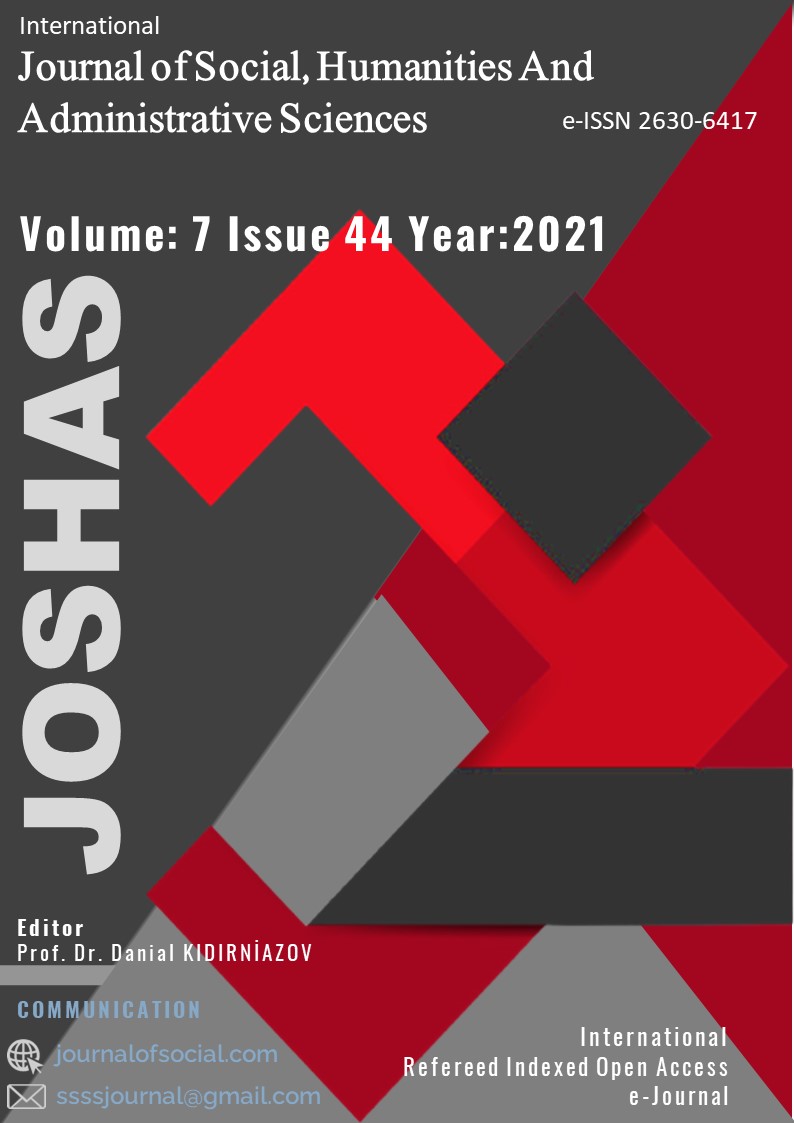Author :
Abstract
İlk olarak Çinin Wuhan kentinde ortaya çıkan ve birçok ülkeye yayılarak her alanda tehdit unsuru oluşturan COVİD-19 virüsünün doğurduğu, başta sağlık, ekonomik ve sosyal sonuçlar olmak üzere, daha önce benzeriyle karşılaşmadığımız bir senaryoyla yüzleşmek için tüm firmalar arasında işbirliğini vurgulamaya ihtiyaç duyurmuştur. Covid-19 salgınının 2020 yılı başlarından itibaren Çin’den başlayarak yayılması ile birlikte tüm dünyada ve Türkiye’de son yıllarda hiç rastlanmamış bir sağlık krizi ile yüz yüze gelindi. Bu ani gelişen sağlık krizi belki de tüm dünyada en hızlı şekilde gelişen ekonomik durgunluk dönemine girilmesine sebep oldu. Yaşanan sağlık krizi ve ekonomik durgunluk şirketlerin gelişen koşullara göre çok hızlı şekilde aksiyon almasını gerektirdi. İşte burada kurumsal yönetimin önemi çok daha belirgin hissedilmeye başlandı ve en iyi çözüm önerilerine ilişkin tartışmalar da başladı. Kurumsal yönetim sistemini ve bunun bir gereği olarak risk yönetimini salgın öncesinde kurmuş olan şirketler ani gelişen sorunlara karşı daha hazırlıklı yakalandılar ve sorunları gidermeye yönelik tedbirlerini daha etkin şekilde aldılar. Diğer taraftan birçok şirketin krize çok hazırlıksız yakalandığını ve kurumsal yönetim sistemlerindeki zayıflıklardan kaynaklı olarak önemli sorunlar yaşadığını gözlemlenmiş oldu. Bu makalenin amacı, salgının en zor anlarında ülke ortamındaki şirketlerinin gösterdiği katılımı analiz etmek ve bu şirketlerin onlarla birlikte izledikleri hedefleri belirlemektir. Sonuçlar, birçok firmanın topluma bağlılığını büyük miktarda sürdürdüğünü, diğerler kurumlar gibi COVID-19'un sonuçlarını hafifleten eylemler geliştirdiğini, farklı hedeflere sahip birkaç strateji geliştirdiğini göstermektedir. Bununla birlikte somut olarak, üç sorumluluk kümesi belirlenmiştir. Bunlardan ilki yalnızca hissedarların ve yatırımcıların çıkarlarını koruma şeklindedir. İkincisi ise genel olarak ülke toplumunun özel olarak savunmasız grupların refahını desteklemektir. Üçüncü ve sonuncu madde ise, önceki özgecil eylemleri ticari çıkarlarla birleştirmeye yönelik olmuştur.
Keywords
Abstract
It has made it necessary to emphasize the cooperation between all companies in order to confront a scenario that we have never encountered before, especially health, economic and social consequences, caused by the COVID-19 virus, which first emerged in Wuhan, China and spread to many countries and poses a threat in every field. Covidien-19 since the beginning of the outbreak in 2020 spread all over the world, starting with China and Turkey in recent years has not encountered any point face to face with a health crisis. This sudden health crisis caused perhaps the fastest growing economic recession in the world. The health crisis and the economic recession required companies to take action very quickly according to the developing conditions. Here, the importance of corporate governance began to be felt much more clearly, and discussions on the best solution suggestions began. Companies that established the corporate management system and risk management before the epidemic were better prepared for sudden problems and took measures to resolve the problems more effectively. On the other hand, it was observed that many companies were caught very unprepared for the crisis and that they experienced significant problems due to weaknesses in corporate management systems. The purpose of this article is to analyze the participation of companies in the country environment at the most difficult moments of the epidemic and to determine the goals that these companies are pursuing with them. The results show that many firms maintain a large amount of commitment to society, others like institutions have developed actions that mitigate the consequences of COVID-19, have developed several strategies with different goals. Concretely, however, three clusters of responsibility have been identified. The first is simply to protect the interests of shareholders and investors. The second is to support the welfare of the country's society in general and the particularly vulnerable groups. The third and the last item was about combining previous altruistic actions with commercial interests.
Keywords
- Akıncı, E. (2020). Covid-19 Salgını Kapsamında Şirket Yöneticilerinin Almaları Gereken Önlemlere Genel
- Akıncı, E. (2020). Covid-19 Salgını Kapsamında Şirket Yöneticilerinin Almaları Gereken Önlemlere Genel Bir Bakış. İstanbul Ticaret Üniversitesi Sosyal Bilimler Dergisi,19(38), 202-223.
- Black, B. (2001). The Corporate Governance Behavior and Market Value of Russian Firms, Emerging Markets Review,2,89-108.
- Doğan, M. (2007). Kurumsal Yönetim. Siyasal Kitabevi.
- Düzer, M. (2020). Kurumsal Yönetim Derecelendirmesi: BIST Kurumsal Yönetim Endeksi'nda Bir İnceleme. Afyon Kocatepe Üniversitesi İktisadi ve İdari Bilimler Fakültesi Dergisi,22(2), 149-168.
- Erdoğan, D.C. (2019). Firmaların Kurumsal Yönetim Notunu Etkileyen Unsurlar: BİST 100 Örneği. Karabük Üniversitesi Sosyal Bilimler Enstitüsü Dergisi, 9(1), 63-79.
- Eroğlu, O. (2020). Türkiye'de Kurumsal Mantıklar. Dicle Üniversitesi İktisadi ve İdari Bilimler Fakültesi Dergisi,10(19)232-247.
- Güder F., Güngör M. & Yücekaya, P. (2021). Covid-19 Salgının Tüketici Davranışları Üzerine EtkisininYönetim Stratejileri Bağlamında Değerlendirilmesi. Anadolu Akademi Sosyal Bilimler Dergisi, 3(1), 59-76.
- Güven, S. (2016). Kurumsal İletişim Bağlamında Kurumsal Sosyal Sorumluluk ve Etik İlişkisi. Akdeniz Üniversitesi İletişim Fakültesi Dergisi,26, 133-154.
- Sancar, A.G. (2013). Kurumsal Sürdürülebilirlik Bağlamında Kurumsal Yönetişim. Selçuk Üniversitesi İletişim Fakültesi Dergisi,8(1), 71-84.
- Türkiye Kurumsal Yönetim Derneği (2011). Ekonomi Gazeteciliği için Kurumsal Yönetim El Kitabı. İstanbul Pasfik Ofset Ltd.Şti.
- Varol, G. & Tokuç, B. (2020). Halk Sağlığı Boyutuyla Türkiye'de Covid-19 Pandemisinin Değerlendirilmesi. Namık Kemal Tıp Dergisi,8(3), 579-594.





